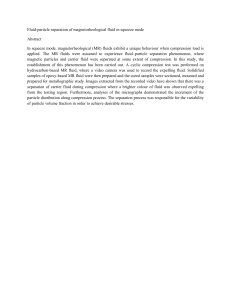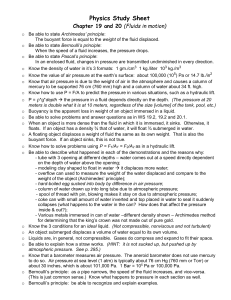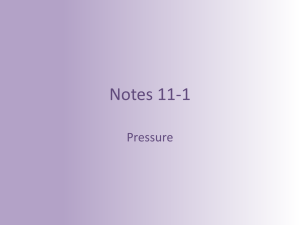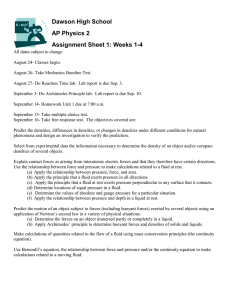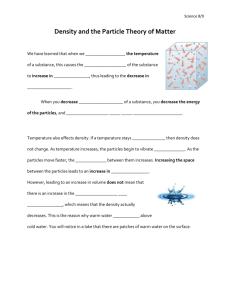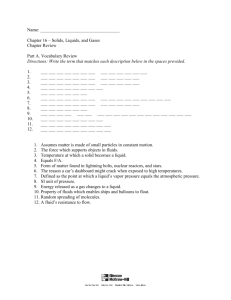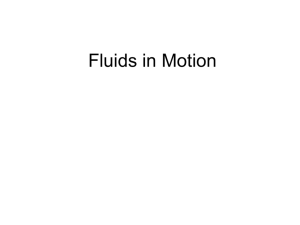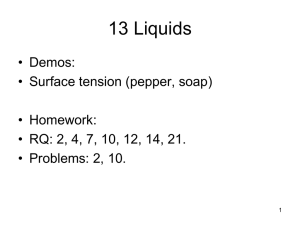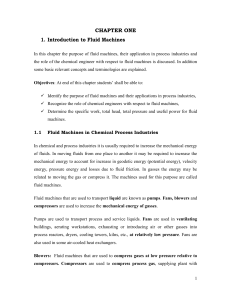pressure - Stanwich School
advertisement
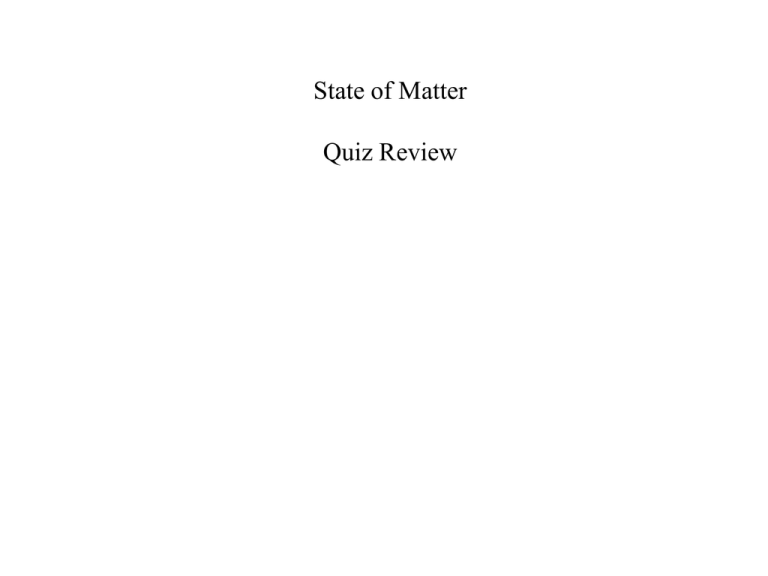
State of Matter Quiz Review Density A measure of how much matter is in a certain volume. Density = Mass/Volume Elasticity When we hang a weight on a spring, the spring stretches. When we remove the weight, the spring returns to its original length. We say the spring is elastic. Hooke’s Law The amount of stretch (or compression), x is directly proportional to the applied force F. Double the force and double the stretch; triple the force and we get three times the stretch, and so on. F-x Compression (push) Tension (pull) Compression (push) compression, decrease in volume of any object or substance resulting from applied stress (force). Tension (pull) The act or process of stretching something tight. Buoyancy The upward force that a fluid exerts on an object less dense than itself Liquid Pressure A liquid exerts a pressure against the walls and bottom of its container, just as a block exerts a pressure against the table. force Pressure = area Principle of Floatation A floating object displaces a weight of fluid equal to its own weight. Pascal’s Principle Changes in pressure at any point in an enclosed fluid at rest are transmitted undiminished to all points in the fluid in all directions. The pressure of the liquid is the same at any given depth below the surface, regardless of the shape of the container. Archimedes’ Principle Lab An immersed object is buoyed up by force equal to the weight of the fluid it displaces. Ideal Gases • Boyles Law • Charles Law • Avogadro’s Law Boyle’s Law (General Physics) the principle that the pressure of a gas varies inversely with its volume at constant temperature. High Pressure Low volume Low Pressure High volume Charles’ Law The principle that the volume of a given mass of an ideal gas is proportional to its temperature as long as its pressure remains constant. Increase temperature Increase pressure Increase volume. Avogadro’s Law Avogadro's Law is the relation which states that at the same temperature and pressure, equal volumes of all gases contain the same number of molecules. Bernoulli’s Principle Bernoulli’s Principle in its simplest form states: When the speed of a fluid increases, the pressure drops
